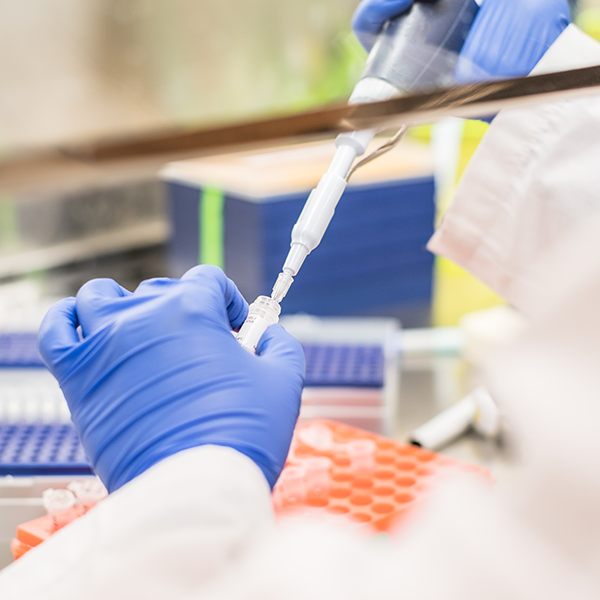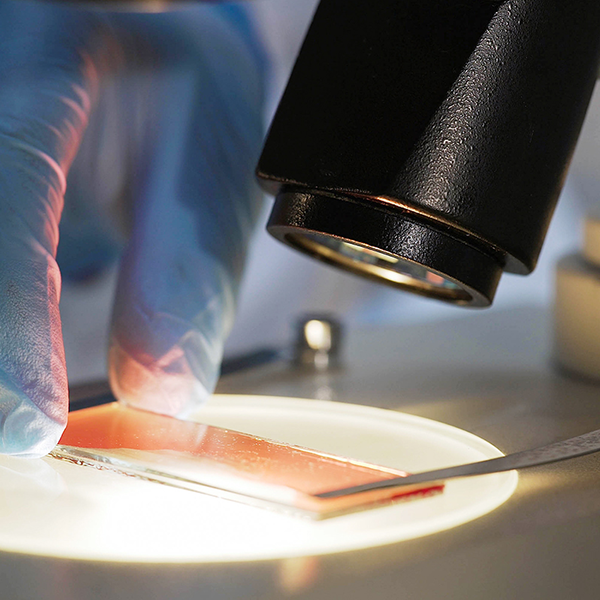
Health Canada has approved clinical trials that could lead the way for cell replacement therapy that does not require immune suppression in people with type 1 diabetes.
JDRF is the leading charitable funder of research into type 1 diabetes in Canada, with a focus on research that will help improve lives today, and lead to disease prevention and cures.
February, 2022 – As the leading charitable funder of type 1 diabetes (T1D) research in Canada, a key focus of JDRF’s strategy is investment in stem cell therapy research for potential T1D cures.
In November, 2021 Health Canada approved clinical trials for ViaCyte, a cell replacement company long supported by JDRF, and CRISPR Therapeutics for a VCTX210, a gene-edited cell replacement therapy for type 1 diabetes (T1D) that doesn’t require immunosuppression.
On February 2, 2022, the companies announced that the first patient was dosed in the phase I study, which will assess the therapy’s safety, tolerability, and immune evasion.
JDRF is very excited about the progress of this clinical trial, and will provide further updates as they become available
On November 16, 2021, ViaCyte, a cell replacement company long supported by JDRF, and CRISPR Therapeutics announced that they will begin clinical trials for a gene-edited cell replacement therapy for type 1 diabetes (T1D) by the end of the year in Canada.

What is cell replacement therapy?
A significant focus of cure-based T1D research is investigating stem cell-based therapy. Researchers look for ways to use stem cells as a renewable source of insulin-producing cells which, when transplanted, would replace the beta cells that are destroyed in a person with T1D, allowing them to produce insulin again. This would lessen or eliminate the amount of external insulin required by someone living with T1D (either by injection, pen, or pump) for months or even decades.
The biggest challenges to stem cell replacement therapy are identifying the appropriate stem cell source (i.e., pancreatic cells, or liver cells) and ensuring that they both function well and will not be rejected by the recipient’s immune system. Much like a transplanted organ – most stem cell replacement therapies require immunosuppressing medications to prevent rejection.
What is different about the ViaCyte and CRISPR therapy?
By the end of the year, Viacyte will start a clinical trial of VCTX210, a gene-edited stem cell replacement therapy for T1D. Combining ViaCyte’s stem cell expertise with CRISPR Therapeutics’ pre-eminent gene-editing platform offers significant potential in the development of a cell replacement therapy that does not require immune suppression.
The phase I clinical trial will begin this year in Canada, and will evaluate the safety, efficacy, and immune evasiveness of the therapy, and will be the first time a gene-edited cell replacement therapy will be tested in people with T1D.
ViaCyte has previously demonstrated that their stem cell-derived beta cells, (which JDRF globally funded the development of), make insulin when transplanted into people with T1D. Now, CRISPR has applied their gene-editing technology to make these cells immune-evasive – meaning that they should not require immunosuppression to prevent rejection – a huge development in making the therapy more universally accessible to people with T1D.
What is JDRF’s role?
JDRF globally has been a long-time and significant supporter of ViaCyte, supporting the company through research funding, including funding 15 years ago (when ViaCyte was called CyThera) that underwrote development of the proprietary line of precursor stem cells used in their treatment.
This clinical trial is one of several potential beta cell replacement cures therapies JDRF is currently funding or supporting.
What does this mean for Canadians with T1D?
JDRF will be closely monitoring the results of the phase 1 clinical trial and will report back on results as they become available.




